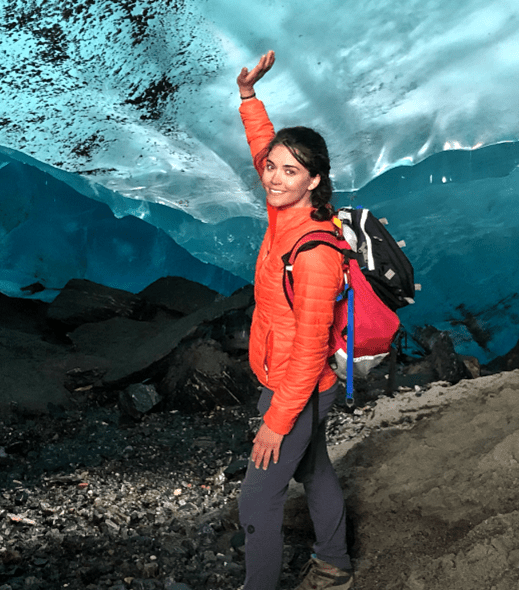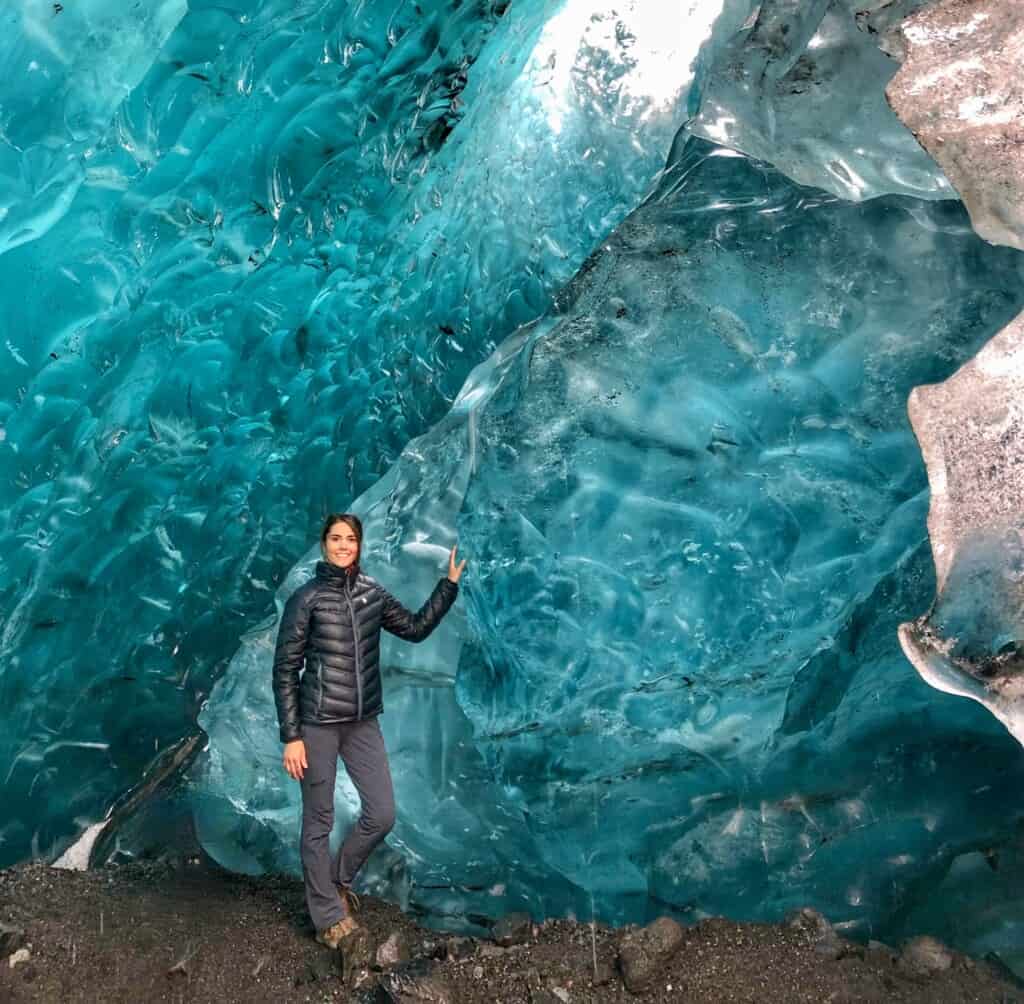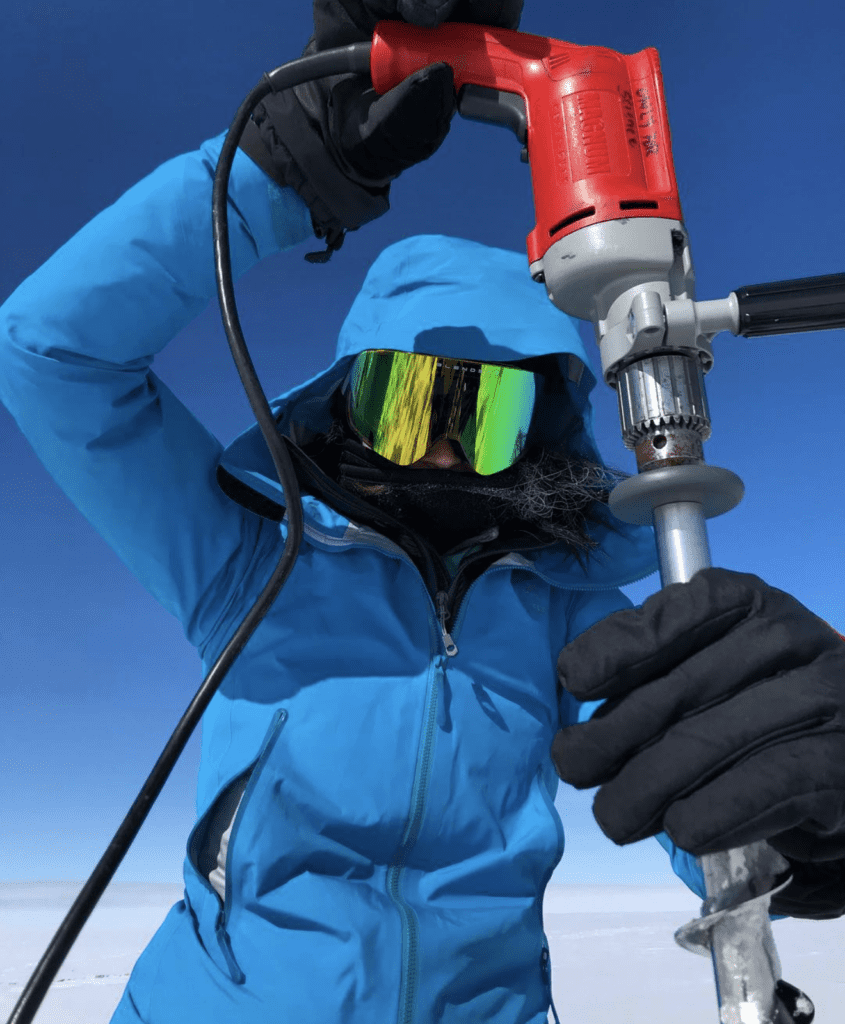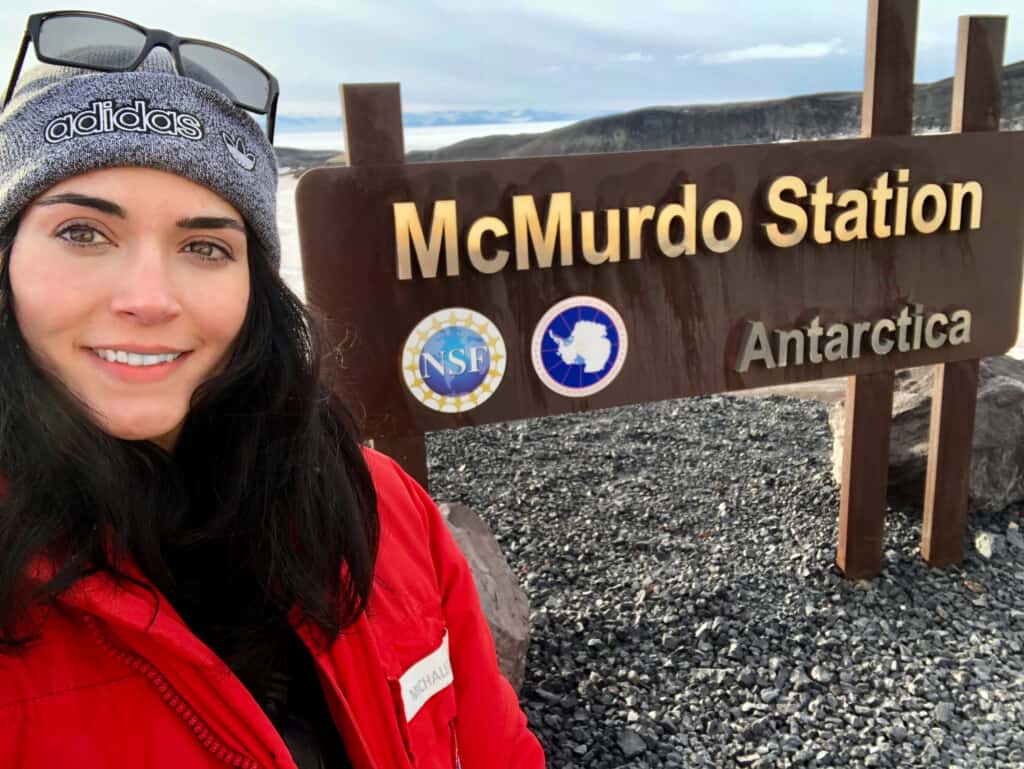You are not limited at APL.”
Enjoying APL one glacier at a time
Senior research scientist-Principal Investigator (PI) Michalea King completed her postdoctoral research at the APL-UW in October 2022 and then became a Principal Investigator in the Polar Science Center of APL a month later. As a Principal Investigator, she is responsible for bringing in her own support by writing proposals for grants to work on several projects at once. Her main area of study is on ice sheets and glaciers, focusing on the Greenland ice sheet.
Originally, Michaela went to school for engineering, following the path that many felt was best for her. She quickly realized that although she loved math and science, her interests were not in engineering. She ultimately found her intellectual joy in atmospheric sciences. She enjoyed studying meteorology and the prediction of weather, leading her to pursue her B.S. in geography from the Ohio State University.
Meet Michalea King

Major
B.S. Geography, M.Sc. Geography, and Ph.D. Earth Sciences
How I came to APL-UW
APL-UW, and specifically the Polar Science Center, was always on my radar because there are many scientists working here that really excel in my field.
Who helped me along the way
My Ph.D. advisor, Ian Howat, was instrumental in helping me make important connections and advocated for me and my research potential. He was a postdoc at APL-UW and introduced me to potential collaborators here, including Polar Science Center Principal Investigator Ian Joughin, who ultimately became my postdoc mentor. With his help, I applied for and earned the APL Postdoctoral SEED fellowship in April 2020.
Standout moment (so far)
The first part of my postdoc felt isolated due to Covid and working remotely. Once people came back to the office, it helped a lot. Now I meet regularly with a group of peers for “brainstorming sessions,” and I am always learning something new. At the Polar Science Center, we also have weekly coffee hours. We use this time to collaborate, give updates, and sometimes share presentations.
During one of the coffee hours, a colleague who also enjoys wildlife photography presented his photos from the Arctic, mostly birds in the arctic as well as beautiful photos of birds around the Puget Sound. I really like how we can share other facets of our lives, building formal and informal connections, and learning the multiple dimensions of the scientists. Camaraderie!
After having an opportunity to assist in fieldwork during her junior year, Michalea King knew she wanted to be a professional scientist. She discovered her passion for climate change and its clear impact on ice and glaciers. She went on to the University of Delaware to study the Arctic Sea ice before returning to Ohio State University to earn a Ph.D. studying how the Greenland ice sheet and its glaciers are changing.
Michalea became aware of APL-UW and its Polar Science Center department during her graduate studies, describing it as the “powerhouse” for glacier work. Her Ph.D. advisor at Ohio State – Ian Howat – spent time as a postdoc at the APL-UW. With his mentorship and support, Michalea applied to and was selected for a postdoctoral fellowship and joined APL in November of 2020.
Michalea describes the APL as “multidimensional,” with a great sense of “camaraderie.” Read more on Michalea’s research.


